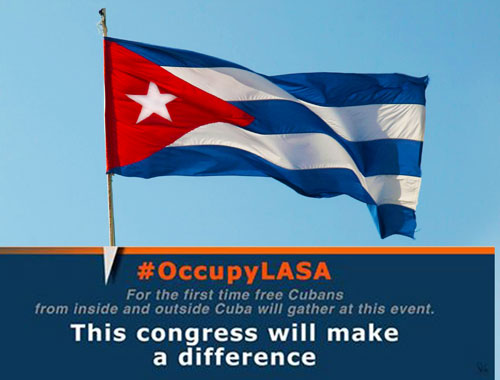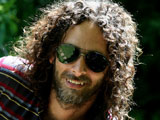#OccupyLASA
by Orlando Luis Pardo Lazo and translated by Alex Higson / June 12, 2013 / 2 Comments
Despite complications, the International Congress of the Latin American Studies Association takes a step towards democratization.

The 31st Conference of the Latin American Studies Association marked the first time that free Cubans from both in and outside of the island were permitted to attend. Photo: via penultimosdias and Wikimedia Commons.
For many years academic study of Latin America in the US has rested on a form of political leftism that brushes aside anyone who won’t comply with the Cuban revolution’s orders. As a result, many intellectuals on the Island have been excluded from Latin American professorships just for having lived in exile after suffering repression in our country.

- Is it worth-while to focus on the last images and letters coming from the inside of the last living utopia on Earth? Is Cuba by now a contemporary country or just another old-fashioned delusion in the middle of Nowhere-America? A Cold-War Northtalgia maybe? Can we expect a young Rewwwolution.cu within that Ancien Régime still known as The Revolution? I would like to provoke more questions than answers.

- Orlando Luis Pardo Lazo was born in Havana City and still resides and resists there, working as a free-lance writer, photographer and blogger. He is the author of Boring Home (2009) and is the editor of the independent opinion and literary e-zine Voces.
The Congresses of the Latin American Studies Association (LASA) have by no means been free of ideological apartheid. Not only does the Cuban delegation include only those names that have been authorized by the Cuban government, but their speeches, which are officially approved by a national board, never contradict the propagandist revolutionary rhetoric.
However, the XXXI International Congress of the LASA in Washington DC (May 29 – June 1, 2013) was an exception to these rules. Various Cuban human rights activists, now traveling the world following the scrapping of Exit Permits, registered for the conference online as a hash-tag spread through social networks: #OccupyLASA.
Perhaps in response, some pro-government professors from the University of Havana (Juan Triana, Jorge Mario Sánchez, and Carlos Alzugaray, together with North American colleagues such as John Kirk of Dalhousie University, plus Cuban diplomats and security personnel from the Consulate) engaged in an “act of protest” against researcher Ted Henken of Baruch College (New York), simply because Henken had asked about the economist Omar Everleny Pérez, who had been dismissed from his position in Cuba without explanation and prohibited from traveling despite being part of the LASA program.
Nevertheless, panels on topics such as “Afro-descendant Populations in the Cuban Nation,” included the critical voices of Manuel Cuesta Morúa, Juan Antonio Madrazo, Leonardo Calvo, and Rafael Campoamor, who used theory and practice to question the anti-democratic character of the Havana regime and the prospect of a democratizing transition.
Such topics were unheard-of at LASA for decades, which is why 2013 was the beginning of a new story: From now on the Congress will have to be less of a complicit ghetto for ideological dreamers and must reflect the intellectual whole of our nation.





2 Comments on "#OccupyLASA"
Great! OLPL, it was about time that Lasa was occupied. I hope it continues for years to come.
Keep it up!
AT
Trackbacks for this post